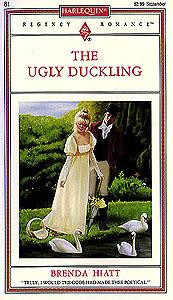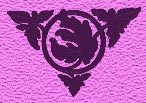Brenda Hiatt's The Ugly Duckling

Brenda Hiatt's heroine in Hiatt's The Ugly Duckling is
Deidre Wheaton, a secret poet who is on her way for London season
with her much lovelier sister, Celeste. Heralded on the cover with
Touchstone's ironic invocation to Audrey, "Truly, I would the
gods had made thee poetical" (AYLI ), Deidre immediately
identifies herself with Shakespeare since the book opens with her
reading sonnet 102 to her other invalid sister Faith. Entranced by
the prospect of meeting her favorite working poets and sending her
poetry to Heigh Hunt for publication, Deidre's interest in the London
scene is far different from her sister's. Nonetheless, Deidre does
draw the attention of the elusive Lord Wrotham. Her interest in him
wavers when she interprets a disparaging remark he makes about a
current poem in Hunt's magazine as general lack of interest in
poetry. Deciding therefore to hide her own interest and involvement
with poetry, she deliberately steers clear of any reference to
literature. Of course, he is interested in poetry and particularly in
the unknown poet whose work is published anonymously by Hunt. And
guess whose poem that might be? Not only do complications arise from
Deidre's determination to show herself as the kind of nonserious
female she assumes Wrotham wants but also her growing fame as a poet,
albeit anonymous, creates problems as well. She also gives herself
aware most strikingly by quoting a lesser known Shakespearean sonnet
in response to a garden view she shares with Wrotham:
"'The roses fearfully on thorns did stand, One blushing
shame, the other white despair.'" she quoted softly without
thinking. The words of that Shakespearean sonnet fit the scene so
well. (128)
Her inadvertant quotation almost reveals her own poetry to Lord
Wrotham who promptly asks her about the Examiner and whether she has
read the sonnet which so haunts him. The conclusion of the novel not
only reveals Deidre's status as poet, but promises her in the form of
Wrotham the family support she has noticeably lacked up till then.
Go to Introduction References
by Play Return to Shakespeare Quoters



